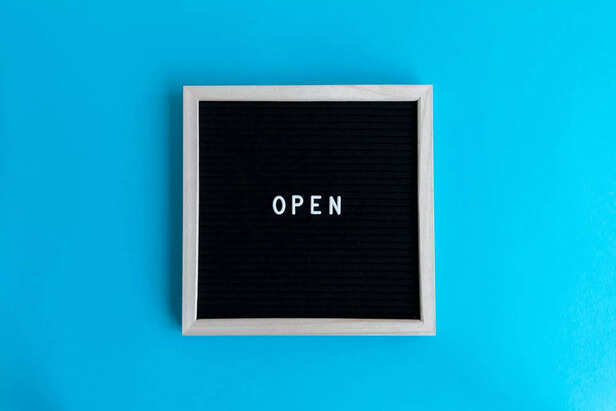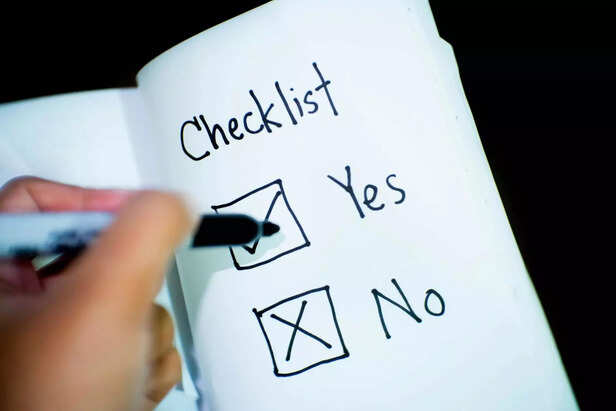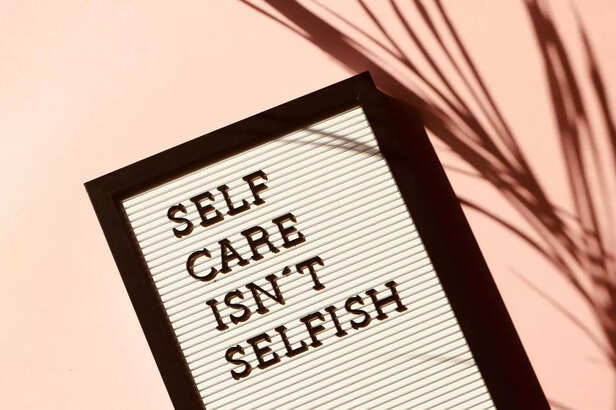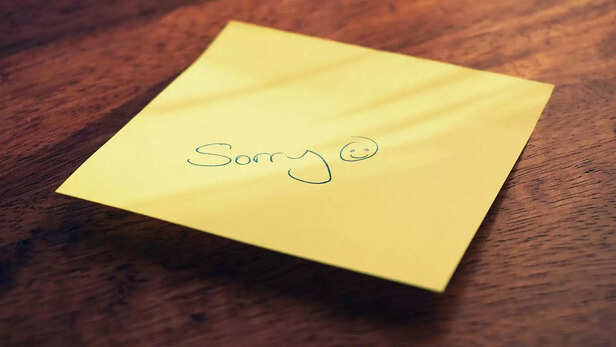Kindness Without Boundaries Is a Weapon Against Yourself: Chanakya Niti
Riya Kumari | Jul 16, 2025, 15:03 IST
( Image credit : Times Life Bureau, Timeslife )
You’re holding the door open. Not just for the person behind you, no, you’re now holding it for a small crowd, like a one-person welcome committee. Someone spills their drama on you mid-coffee and you nod, sip, console, and spiral. Your boss asks if you can "just quickly" rewrite the entire presentation, and you smile like you’ve always dreamed of being emotionally underpaid.
They’ll never tell you this openly, but it’s true: The more kind you are without limits, the more invisible you become. Not to yourself, you feel it clearly. In your exhaustion. In your rising resentment. In that quiet voice inside you whispering, "Something isn’t right." But to them, the ones you're kind to, you slowly become background noise. A resource. A placeholder. A habit. Chanakya didn’t call this virtue. He called it self-neglect. And he knew, long before modern psychology, that unchecked kindness is not a strength. It’s an exposure. Let’s cut through the fluff.

In nature, softness attracts danger. A wounded animal draws predators. A tree that bends too far snaps. Humans are no different. If you don’t signal where your line is, people will assume there isn’t one. And that’s not always because they’re cruel. It’s because systems, relationships, and people subconsciously calibrate around what you allow. So if you always absorb the discomfort, the conflict, the extra work, don’t be surprised when the world assigns you that role permanently.
“The one who tolerates everything eventually becomes the one who matters least.” - an unspoken law of power. Chanakya knew that those who are always available are rarely respected. He warned not against generosity, but against predictable generosity. The kind people stop thanking you for.

You think you're being selfless. But what you’re actually doing is teaching people that your boundaries are optional, your needs are flexible, and your energy is disposable. Not because they’re evil. But because you’ve made yourself easy to ignore. In psychological terms, this is a dangerous pattern. You’re not just giving love, you’re giving power.
Every time you help without being asked, every time you say yes when your gut screams no, you’re handing over tiny pieces of leverage. You’re training them how to treat you. And worse: You’re untraining yourself from protecting your own dignity.

Here’s where it gets dark. When people realize you find it hard to say no, they don’t back off. They lean in. They start dressing their needs as emergencies. They use words like “but I thought you understood” and “you’re the only one I can count on.” It sounds like flattery. It’s not. It’s leverage. Chanakya’s Niti teaches: the weak do not beg for help, they weaponize emotional pressure to secure obedience.
And most people won’t call it manipulation because it doesn’t look like manipulation. But guilt is a more efficient tool than force. It’s quiet. It’s internal. And if you don’t catch it early, you’ll keep giving out of fear of being seen as “selfish” rather than out of your own will.

There’s a strange loneliness in being the one who always understands, always forgives, always gives the benefit of the doubt. At first, it feels noble. Then it becomes exhausting. Eventually, it becomes dangerous. Because when no one fears losing you, they stop valuing you. Chanakya believed that the greatest leaders, the most respected individuals, were not the ones who gave everything.
They were the ones who knew when to withdraw, when to stay silent, and when to burn the bridge no one expected them to. Power is not in how much you offer. Power is in how much you withhold with precision.

This is the cruelest truth. The people who benefit most from your overgiving? They’re the ones most threatened by your awakening. Because if you suddenly start setting boundaries, questioning behavior, and protecting your time, they lose their advantage. They’ll tell you you’re “changing,” becoming “cold,” “distant,” “selfish.” You’re not. You’re just becoming someone who finally sees the cost of being constantly available in a world that feeds on emotional discounts.
Chanakya didn’t tell people to be unkind. He told them to be wise. To understand that being good is not the same as being safe. That in a world driven by self-interest, you can’t afford to hand out kindness without calculation.
You were never meant to be endlessly accommodating. You were meant to love wisely, give precisely, and protect your peace like your life depends on it. Because it does. Chanakya’s wisdom wasn’t about winning battles. It was about not creating a life where you’re always fighting yourself. So ask yourself, with brutal honesty:
1. Kindness Without Strategy Is an Advertisement for Exploitation

Open
( Image credit : Pexels )
In nature, softness attracts danger. A wounded animal draws predators. A tree that bends too far snaps. Humans are no different. If you don’t signal where your line is, people will assume there isn’t one. And that’s not always because they’re cruel. It’s because systems, relationships, and people subconsciously calibrate around what you allow. So if you always absorb the discomfort, the conflict, the extra work, don’t be surprised when the world assigns you that role permanently.
“The one who tolerates everything eventually becomes the one who matters least.” - an unspoken law of power. Chanakya knew that those who are always available are rarely respected. He warned not against generosity, but against predictable generosity. The kind people stop thanking you for.
2. Unconditional Kindness Is Just Emotional Exposure Dressed as Morality

Yes
( Image credit : Pexels )
You think you're being selfless. But what you’re actually doing is teaching people that your boundaries are optional, your needs are flexible, and your energy is disposable. Not because they’re evil. But because you’ve made yourself easy to ignore. In psychological terms, this is a dangerous pattern. You’re not just giving love, you’re giving power.
Every time you help without being asked, every time you say yes when your gut screams no, you’re handing over tiny pieces of leverage. You’re training them how to treat you. And worse: You’re untraining yourself from protecting your own dignity.
3. Guilt Is the Currency the Manipulative Use to Buy Your Compliance

Self care
( Image credit : Pexels )
Here’s where it gets dark. When people realize you find it hard to say no, they don’t back off. They lean in. They start dressing their needs as emergencies. They use words like “but I thought you understood” and “you’re the only one I can count on.” It sounds like flattery. It’s not. It’s leverage. Chanakya’s Niti teaches: the weak do not beg for help, they weaponize emotional pressure to secure obedience.
And most people won’t call it manipulation because it doesn’t look like manipulation. But guilt is a more efficient tool than force. It’s quiet. It’s internal. And if you don’t catch it early, you’ll keep giving out of fear of being seen as “selfish” rather than out of your own will.
4. When You’re Always the Bigger Person, You End Up Alone on the High Ground

Sorry
( Image credit : Pexels )
There’s a strange loneliness in being the one who always understands, always forgives, always gives the benefit of the doubt. At first, it feels noble. Then it becomes exhausting. Eventually, it becomes dangerous. Because when no one fears losing you, they stop valuing you. Chanakya believed that the greatest leaders, the most respected individuals, were not the ones who gave everything.
They were the ones who knew when to withdraw, when to stay silent, and when to burn the bridge no one expected them to. Power is not in how much you offer. Power is in how much you withhold with precision.
5. Not Everyone Who Benefits from Your Kindness Wants You to Wake Up

Clarity
( Image credit : Pexels )
This is the cruelest truth. The people who benefit most from your overgiving? They’re the ones most threatened by your awakening. Because if you suddenly start setting boundaries, questioning behavior, and protecting your time, they lose their advantage. They’ll tell you you’re “changing,” becoming “cold,” “distant,” “selfish.” You’re not. You’re just becoming someone who finally sees the cost of being constantly available in a world that feeds on emotional discounts.
Chanakya didn’t tell people to be unkind. He told them to be wise. To understand that being good is not the same as being safe. That in a world driven by self-interest, you can’t afford to hand out kindness without calculation.
The Hard Truth You Need to Sit With
- Who takes your time like it’s theirs to spend?
- Who drains your energy and calls it friendship?
- Where have you confused guilt with love?
